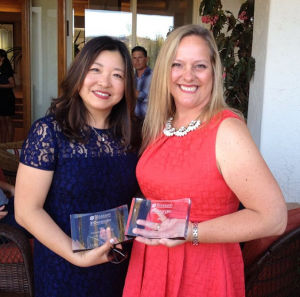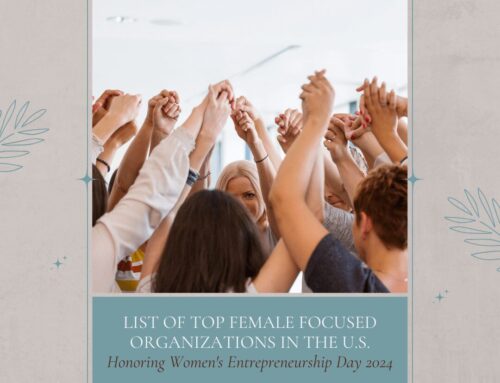When it comes to business, women, and venture capital the playing field has not been entirely level. But with more women becoming venture capitalists and a strong push from many sectors to fund more women run businesses, the tides are changing for women entrepreneurs.
Currently, according to Fiona Murray the Associate Dean of Innovation at MIT, only 7% of venture capital funding goes to female owned and led businesses; despite the fact that an overwhelming 60% of businesses in the US are founded and/or cofounded by women.
 This has a lot to do with the venture capital landscape and industry itself. According to analysts at Pitchbook, in 2014 only 4.4% of active venture capitalists are women. The lack of women in venture capital firms means little to no representation of women at the top. Thereasa Gouw, one of Time Magazines’ 10 most powerful women in technology and co-founder of Aspect Ventures, an investment firm focused on mobile startups, explains it is a pipeline problem – women are underrepresented, and men naturally tend to fund the kinds of businesses to which they can relate.
This has a lot to do with the venture capital landscape and industry itself. According to analysts at Pitchbook, in 2014 only 4.4% of active venture capitalists are women. The lack of women in venture capital firms means little to no representation of women at the top. Thereasa Gouw, one of Time Magazines’ 10 most powerful women in technology and co-founder of Aspect Ventures, an investment firm focused on mobile startups, explains it is a pipeline problem – women are underrepresented, and men naturally tend to fund the kinds of businesses to which they can relate.
“People tend to know people who are sort of like them. . . That’s because the other usually white male guys who went to the same five schools have very deep networks for the people who look a lot like them,” Gouw described at the Forbes Power Women Summit.
Women are savvy in raising capital from more diverse sources. According to Forbes and research conducted by Indiegogo, women receive 47% of crowdfunding and 25% of angle capital. When the investor population is more diverse, so are the entrepreneurs that receive funding. Meaning, more women and diversity must be present in the investing pool.
 There has been a recent push in the investment and business world to bring in more women investors. This past July Hera Hub’s Felena Hanson organized, along with other female industry leaders, the first annual Women Investing In Women Summit in San Diego. One of the main ongoing goals of the summit is to provide women the education and resources they need to become active investors by investing directly into companies and really understanding the interworking of those companies; as opposed to passive investing with managed stock market funds.
There has been a recent push in the investment and business world to bring in more women investors. This past July Hera Hub’s Felena Hanson organized, along with other female industry leaders, the first annual Women Investing In Women Summit in San Diego. One of the main ongoing goals of the summit is to provide women the education and resources they need to become active investors by investing directly into companies and really understanding the interworking of those companies; as opposed to passive investing with managed stock market funds.
“We know women are out there who have the capacity to be investors; but women aren’t taught how to be active investors. Our goal is to give women the resources and education to become confident successful active investors,” Felena said discussing the Summit. “More women investors mean more women get funded and ultimately more women have to opportunity to become entrepreneurs, which is a wonderful thing.”
Hera Hub also just recently launched The Hera Fund through the Hera Labs division, run by Silvia Mah, Felena’s angel investor of Hera Hub. The goal of the fund is to empower and sustain women owned-businesses and also to support all other “female focused” businesses that promote women’s interests.
The tech industry, an industry that has been highly criticized for its lack of women, has also begun focusing on and promoting women businesses and ideas. Google is funding a challenge to accelerators, incubators, and others to increase women’s participation in those groups by 25% in 2014. Forbes’ Top Start Up Incubator, Y Combinator, held a female founders conference in March of this year. And 500 Startups, a Silicon Valley incubator, announced “500 Women,” a goal to pump $1 million into 10 companies with women founders already in their portfolio.
There has never been a better time for female entrepreneurs and those planning to start their businesses to look for and secure funding. This new focus and opportunity is not only wonderful for female entrepreneurs, it’s also great for their investors, businesses, and the economy as a whole. Women currently represent 60% of the business founders in America and are starting businesses twice as fast as men, quote from the US Department of Commerce.
By funding more female led businesses and bringing in more female representation, women’s innovations will be given a greater platform and will pave the way for next generation of female entrepreneurs.
If you are currently looking for funding or will be in the future the best advice is to know your options. “There are so many investment opportunities for women; the best thing for women to do is educate themselves on all of their options, and constantly be promoting,”
_________________________________________________________________
 Kayla Koterbay, a UCSB graduate, is currently pursuing her Masters of Mass Communications and New Media at San Jose State University. With a background in finance, she’s interested in the intersections between economics, women, and community. Connect with Kayla on LinkedIn.
Kayla Koterbay, a UCSB graduate, is currently pursuing her Masters of Mass Communications and New Media at San Jose State University. With a background in finance, she’s interested in the intersections between economics, women, and community. Connect with Kayla on LinkedIn.





